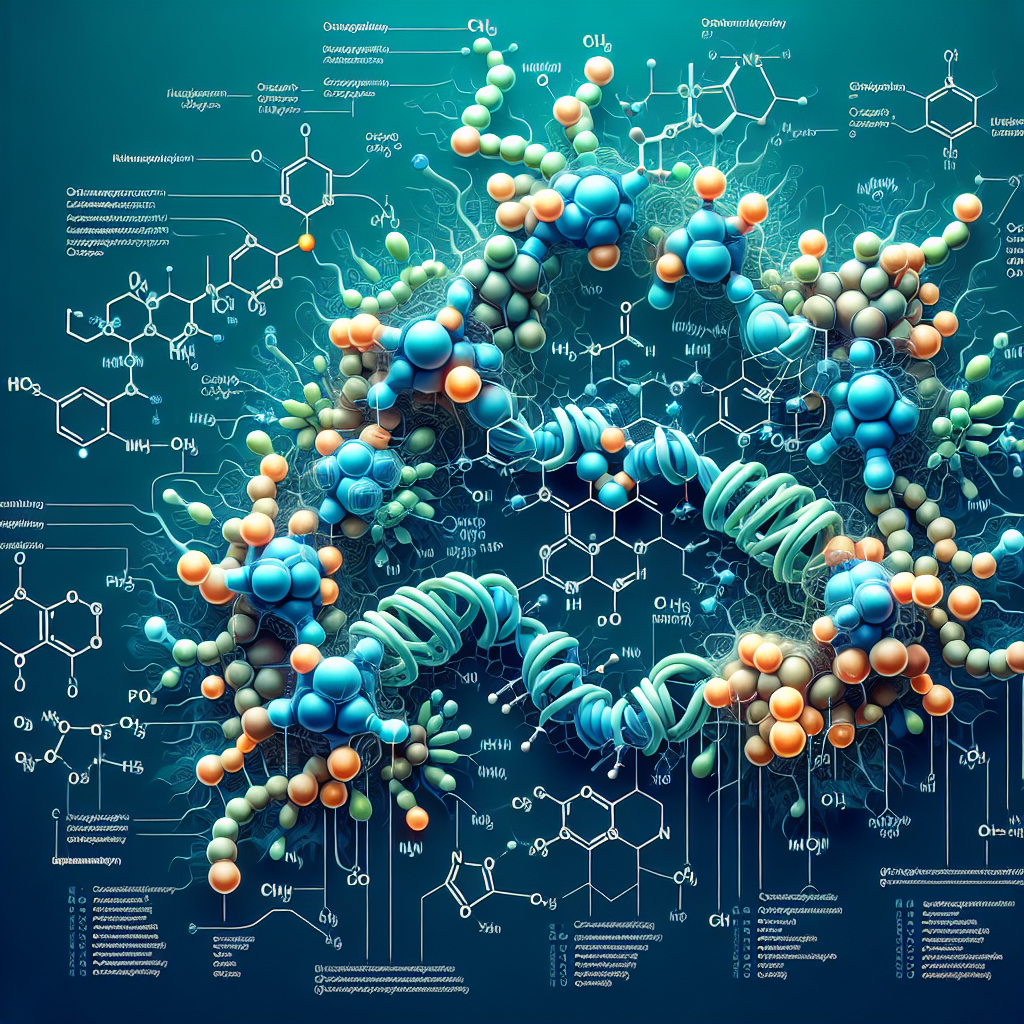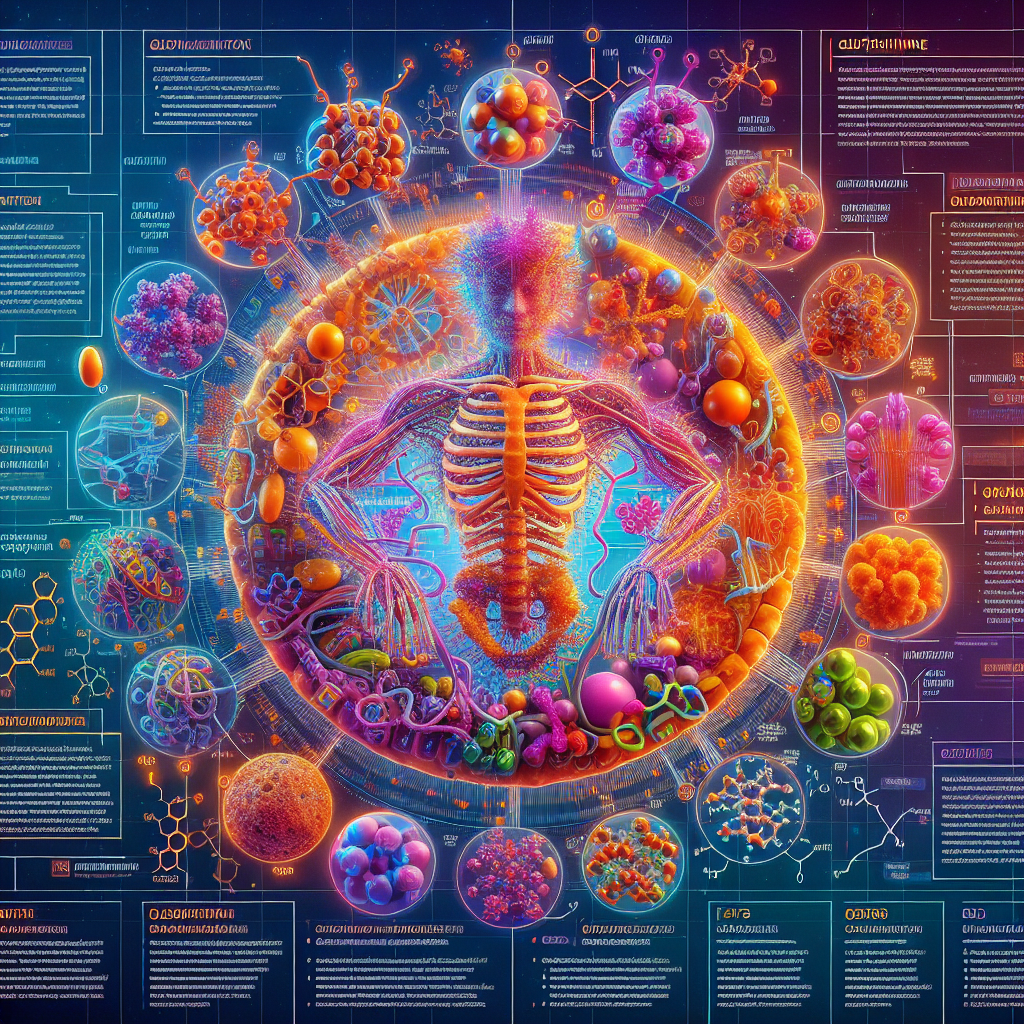Glutathione: Your Body’s Master Antioxidant

Discover the power of Glutathione, your body’s master antioxidant, and unlock the secret to optimal health. Learn more about its benefits and how you can boost your levels naturally. Don’t wait, start your journey to vibrant health today! Click here to find out more.
Understanding the Role of Glutathione: Your Body’s Master Antioxidant
Glutathione, often referred to as the body’s master antioxidant, is a critical molecule that plays a significant role in maintaining and improving health. It is a tripeptide, composed of three amino acids: cysteine, glutamate, and glycine. This powerful antioxidant is produced naturally in our bodies and is found in every cell, making it essential for a variety of biological processes.
Primarily, glutathione is renowned for its antioxidant properties. Antioxidants are substances that help neutralize harmful free radicals in the body. Free radicals are unstable molecules that can cause damage to cells, leading to aging and various diseases. Glutathione, being a potent antioxidant, combats these free radicals, thereby reducing oxidative stress. This is crucial because excessive oxidative stress can lead to chronic inflammation, which is a common denominator in many chronic diseases like heart disease, diabetes, and cancer.
In addition to its antioxidant function, glutathione also plays a vital role in detoxification. Our bodies are constantly exposed to toxins, whether from the food we eat, the air we breathe, or the products we use. Glutathione helps to detoxify these harmful substances, converting them into less harmful compounds that can be excreted from the body. This detoxification process is particularly important for the liver, the body’s primary detoxifying organ. By aiding in the detoxification process, glutathione contributes to the overall health and functioning of the liver.
Furthermore, glutathione is involved in the regulation of cellular events, including gene expression, DNA and protein synthesis, cell proliferation and apoptosis, signal transduction, cytokine production, and immune response. It also plays a role in the regeneration of other antioxidants, such as vitamins C and E, enhancing their effectiveness in combating oxidative stress.
Despite its critical role in maintaining health, glutathione levels can be depleted by various factors. Aging, poor nutrition, chronic disease, infections, stress, and exposure to toxins can all contribute to lower glutathione levels. This depletion can lead to increased oxidative stress and reduced detoxification capacity, potentially paving the way for disease development.
Fortunately, there are ways to boost glutathione levels in the body. Consuming a diet rich in sulfur-containing foods, such as garlic, onions, and cruciferous vegetables, can help increase glutathione production. Certain nutrients, including selenium, vitamin C, and vitamin E, are also known to support glutathione synthesis. Additionally, regular exercise can boost glutathione levels by promoting its production and reducing oxidative stress.
In conclusion, glutathione, the body’s master antioxidant, plays a crucial role in maintaining health and preventing disease. Its antioxidant, detoxifying, and regulatory functions make it essential for optimal cellular function and overall well-being. While our bodies naturally produce this vital molecule, certain lifestyle factors can deplete its levels. Therefore, it is important to adopt healthy habits, such as a balanced diet and regular exercise, to support glutathione production and maintain its optimal levels in the body.
Boosting Your Health with Glutathione: The Master Antioxidant

Glutathione, often referred to as the body’s master antioxidant, is a powerful substance that is naturally produced within our bodies. It is a tripeptide, composed of three essential amino acids: cysteine, glycine, and glutamate. This potent antioxidant plays a crucial role in maintaining our overall health and well-being, and its benefits are manifold.
Firstly, glutathione is a powerful detoxifier. It binds to toxins in our bodies, such as heavy metals, solvents, and pesticides, and transforms them into a form that can be easily excreted. This process is vital for our bodies to function optimally, as the accumulation of toxins can lead to various health issues, including chronic fatigue, autoimmune disorders, neurological diseases, and cancer.
Secondly, glutathione plays a significant role in immune function. It enhances the activity of immune cells and acts as an antioxidant within them, protecting these vital cells from oxidative stress. This is particularly important as our immune system is constantly exposed to various threats, such as bacteria, viruses, and other pathogens. By boosting our immune function, glutathione helps us to fight off these threats more effectively.
Moreover, glutathione has anti-aging properties. It neutralizes harmful free radicals, which are unstable molecules that can damage cells and contribute to aging and diseases. By doing so, glutathione helps to slow down the aging process and reduce the risk of age-related diseases.
Despite its importance, the levels of glutathione in our bodies can decrease due to various factors, such as poor nutrition, chronic stress, and aging. This can lead to a weakened immune system, increased oxidative stress, and a higher risk of diseases. Therefore, it is crucial to maintain optimal levels of this master antioxidant.
There are several ways to boost your glutathione levels. Consuming a diet rich in sulfur-containing foods, such as garlic, onions, and cruciferous vegetables, can help to increase the production of glutathione. Additionally, certain nutrients, such as selenium, vitamin C, and vitamin E, can also support glutathione synthesis.
Exercise is another effective way to boost glutathione levels. Regular physical activity can increase the production of this antioxidant, as well as enhance its utilization in the body. Moreover, exercise can help to reduce oxidative stress and improve overall health.
Supplementation can also be considered to increase glutathione levels. However, it is important to note that not all glutathione supplements are effective, as this antioxidant can be easily destroyed in the digestive tract. Liposomal glutathione, which is encapsulated in tiny, fat-like particles to enhance absorption, is often recommended.
In conclusion, glutathione, the body’s master antioxidant, plays a crucial role in maintaining our health and well-being. By detoxifying our bodies, boosting our immune function, and slowing down the aging process, it helps us to stay healthy and vibrant. Therefore, it is essential to maintain optimal levels of this powerful antioxidant through a healthy diet, regular exercise, and possibly supplementation.
The Science Behind Glutathione: The Body’s Most Powerful Antioxidant
Glutathione, often referred to as the body’s master antioxidant, is a tripeptide molecule that plays a crucial role in maintaining and enhancing the body’s immune system. It is composed of three essential amino acids: cysteine, glutamate, and glycine. This powerful antioxidant is produced naturally in our bodies and is found in every cell, making it vital for a number of biological processes.
The science behind glutathione’s effectiveness lies in its unique ability to neutralize harmful free radicals. Free radicals are unstable molecules that can cause damage to healthy cells, leading to a process called oxidative stress. This process is linked to a variety of chronic diseases, including cancer, heart disease, and neurodegenerative disorders like Alzheimer’s. Glutathione, as an antioxidant, counteracts the destructive effects of these free radicals by donating an electron, thereby stabilizing them and preventing them from causing cellular damage.
Moreover, glutathione plays a significant role in the detoxification process. It binds to toxins, making them soluble and therefore easier for the body to eliminate. This includes heavy metals, environmental pollutants, and even carcinogens, which are then excreted through the bile and stool. By doing so, glutathione helps to cleanse the body and protect it from harmful substances.
In addition to its antioxidant and detoxifying properties, glutathione also aids in energy production. It is involved in the mitochondrial function, the powerhouse of the cell, where it helps to generate energy. This makes it essential for maintaining overall health and vitality.
Furthermore, glutathione is instrumental in the regulation of the immune system. It enhances the body’s ability to fight off infections and diseases by promoting the growth and activity of T-cells, a type of white blood cell that plays a key role in immunity. This makes glutathione not only a powerful antioxidant but also a potent immune booster.
Despite its numerous benefits, the body’s glutathione levels can be depleted due to various factors such as aging, stress, poor nutrition, and exposure to toxins. This can lead to a weakened immune system, increased oxidative stress, and a higher risk of disease. Therefore, it is important to maintain optimal glutathione levels for overall health and well-being.
Fortunately, there are several ways to boost the body’s glutathione levels. This includes consuming a diet rich in sulfur-containing foods like garlic, onions, and cruciferous vegetables, as these help to stimulate glutathione production. Regular exercise also enhances glutathione levels by boosting the body’s antioxidant defense system and improving detoxification. Additionally, certain supplements like N-acetylcysteine (NAC) and alpha-lipoic acid can also increase glutathione levels.
In conclusion, glutathione, the body’s master antioxidant, plays a pivotal role in maintaining health and preventing disease. Its unique ability to neutralize free radicals, detoxify the body, aid in energy production, and regulate the immune system makes it an essential component of our biological processes. By understanding the science behind glutathione and taking steps to maintain its optimal levels, we can harness its power to promote health and longevity.